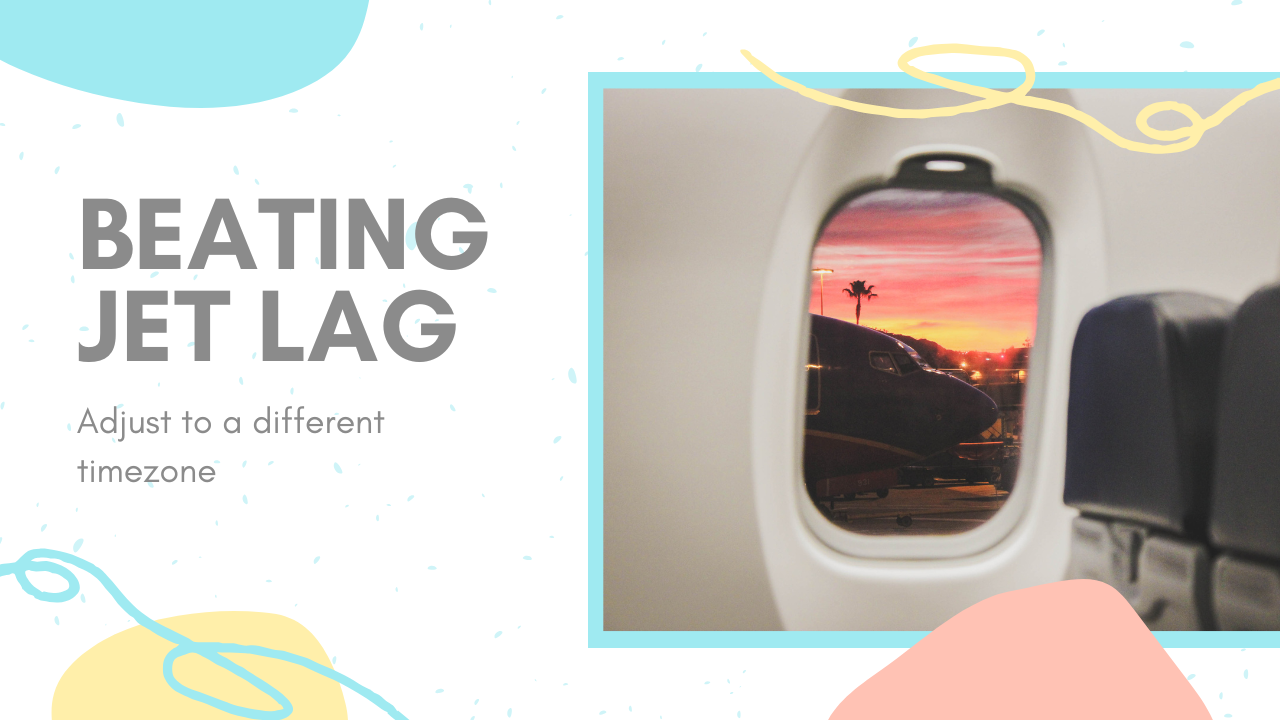
Post by : Sami Jeet
Disclaimer:This article is intended for informational purposes and should not replace professional medical advice. Always seek guidance from your medical professional for severe or consistent sleep issues.
Traveling is a thrilling adventure filled with new sights and cultures. However, the downside often includes jet lag — that groggy, drained sensation that hits when your body clock doesn't match local time.
Jet lag occurs when your body's internal clock (circadian rhythm) is misaligned with the local schedule. Luckily, adjusting doesn’t require expensive supplements or drastic measures. With a few simple, research-driven changes, you can recover swiftly and savor your travels from the moment you arrive.
Jet lag arises when your sleep-wake cycle fails to align with the local day-night routine.
For instance, flying from Dubai to New York involves an eight-hour difference, leaving your body unaware that it’s day when it still feels like night.
The solution lies in helping your body synchronize with the new local time by managing light exposure, meal timings, and sleep routines.
Get ready before you take off:
Gradually shift your sleep schedule:
Start altering your bedtime and wake time to align with your destination’s clock 2–3 days before departure.
If headed east, sleep earlier.
If traveling west, sleep later.
Adjust your meal times:
Start eating according to the new schedule to signal your body to expect a shift.
Stay hydrated:
Dehydration can amplify jet lag symptoms. Drink ample water before and during your flight, and minimize alcohol and caffeine intake, as they can disrupt sleep.
Light is the most significant factor in resetting your internal clock.
Morning light assists in adjusting when traveling east (to rise early).
Evening light is beneficial for traveling west (to stay awake longer).
If you land in the morning, spend some time outside — natural sunlight boosts serotonin production and decreases melatonin levels, which helps keep you alert.
If you arrive at nighttime, avoid bright screens and dim the lights around you to promote rest.
Make the most of your travel time:
On overnight journeys, try to sleep using an eye mask, earplugs, and a neck pillow.
On day flights, steer clear of long naps. Instead, keep moving, stretch, and stay engaged.
If you struggle to sleep, prefer relaxation music or white noise apps to sleeping medications, which may interrupt your natural rhythms.
After landing, act like it's already the new time zone — even if you're feeling tired.
Eat your meals according to local times.
Go to sleep and wake up as per local hours.
Nap only if absolutely necessary (keep it under 30 minutes).
This method of “faking it till you make it” aids your internal clock in catching up swiftly.
Melatonin supplements: These can help reset your sleep cycle, particularly when heading east. Take them 30 minutes before new bedtime, limited to just 2–3 days.
Foods rich in magnesium such as bananas, almonds, and leafy greens encourage relaxation and quality sleep.
Chamomile tea or lavender oil can help promote calmness at bedtime without causing dependency.
Regular physical activity assists your body in adjusting more rapidly. A quick walk or light yoga session after arriving boosts blood flow and alertness.
Avoid intense workouts right after landing, as your muscles may be sore from hours in transit.
Your initial day can significantly influence your adjustment:
Morning arrivals: Stay outdoors, eat lighter meals, and sleep only at night.
Night arrivals: Take a warm shower, relax, and go to sleep as near to local bedtime as possible.
Avoid cramming your first day — your body needs time to acclimatize.
Once your body acclimates, stick to regular meal and sleep timings throughout your visit.
If your stay is brief (less than 3 days), consider adhering to your usual schedule instead of entirely adjusting.
Modern applications like Timeshifter and Entrain employ data science to determine optimal times for sleep, meals, and light exposure based on your travel route, simplifying your adjustment to new time zones.
Jet lag doesn’t need to hinder your first moments in a new country. With strategic planning — from altering sleep patterns to managing light exposure, hydration, and movement — you can naturally reset your body clock and feel invigorated for your adventures ahead.
Travel wisely, rest deeply, and arrive ready to explore.










Roberto Martinez Critiques Harshness of Ronaldo's Red Card in Ireland Match
Portugal's coach, Roberto Martinez, defends Ronaldo after his first red card impacts a 2-0 loss to I

Luis Rubiales Egged at His Book Launch in Madrid
Luis Rubiales faced an egg-throwing incident by his uncle during his book launch, further complicati

Kai Trump Struggles in LPGA Debut, Reflects on Experience
Kai Trump finished her LPGA debut with a score of 83, learning valuable lessons amid significant att

Kansas State Edges Past Cal 99-96 in Thrilling Encounter
Kansas State narrowly defeats Cal 99-96, with Haggerty's standout performance crucial to the Wildcat

Suns Dominate Pacers with Stellar Performance from Booker
The Suns secure a decisive victory over the Pacers, with Devin Booker showcasing his talent and exte

Injury-Stricken Clippers Battle Mavericks in NBA Cup Clash
Both the Clippers and Mavericks face injury struggles as they meet in an NBA Cup showdown, eager to